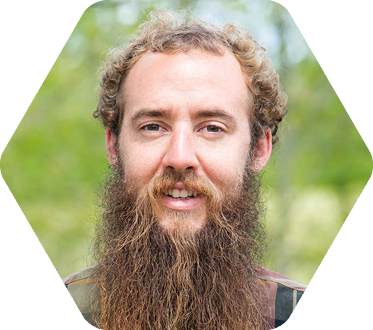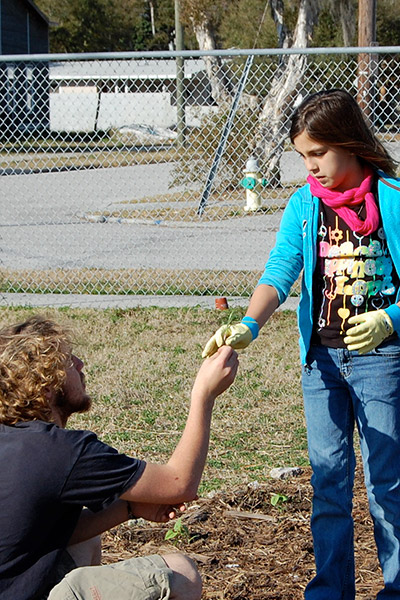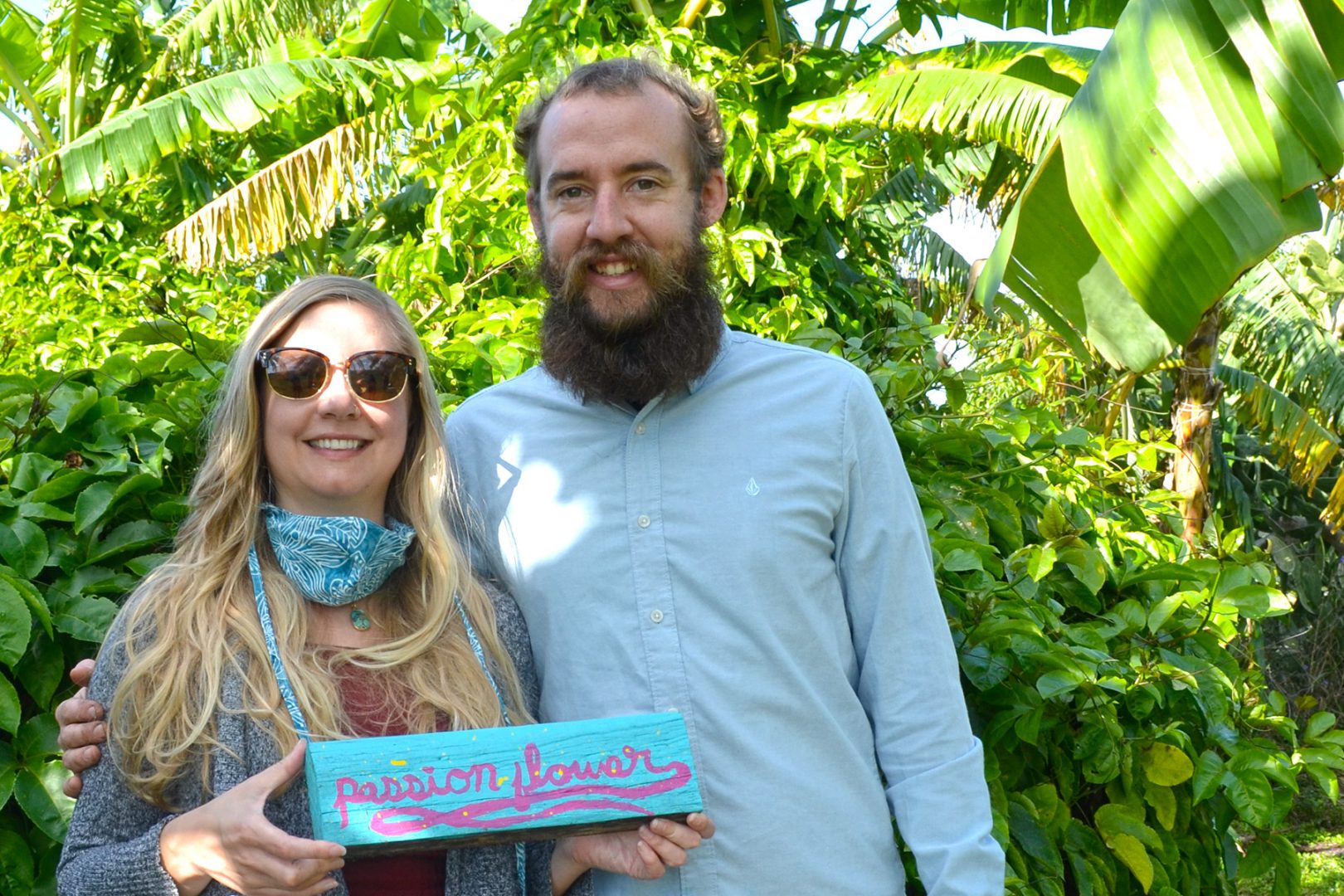Class of 2012
Thomas Leonard ’12 credits his Eckerd education with giving him the practical skills—project management, trimming a bloated budget, communication, and more—that he needed to succeed in his professional career.
For Thomas, an environmental studies graduate, his chosen field is literally a field. He is an experienced farm manager in North Carolina with Gaia Herbs, a leading brand in herbal supplements, and he traces his interest in farming back to being one of the students who founded Eckerd’s campus garden. Now he’s giving back to his alma mater, hoping more students will be inspired to connect with the earth beneath them.
“I’m 30 years old, and I could not be this far in my farming skill set were it not for my seasons at Eckerd,” he says. “One of the biggest things that the garden instilled in me: I got a good understanding that humans can accomplish anything they want to if they keep their minds on something. We have the ability to change our environment and our reality.”
Thomas has used those insights in a winding career path in his nine years after leaving Eckerd. He started a nonprofit focusing on reforestation, ran his own small farm, worked with adults with disabilities doing vocational training, did farming work with inner-city youth and school groups, and managed what used to be the world’s largest nursery in Virginia. Early on, he took a summer to study accounting but ultimately decided he would rather be coaxing life from the dirt than crunching numbers.

“Once I started getting jobs being paid to farm, I thought, I can actually make as much money doing something I’m really passionate about as I can working for a big accounting firm,” he says.
Thomas made a gift to Eckerd to support the student garden, which is now expanding into a campus farm where students can develop the same passion for the true-life applications of their classroom environmental studies that he did. The project has garnered strong support, including an $125,000 gift from Trustee Board Chair Ian Johnson ’89. A full-time Eckerd staff farm manager will help students manage the land and grow produce for on-campus use, including in cafeterias. That staff member, Jonathan Prieto, began at Eckerd on July 1. The farm fits under Pillar IV of the President’s Innovation Fund—A Sustainable Future: Pursuing Resilience. Students will still be able to have their community garden, but Eckerd hopes many of them will participate in the farm activities.
Thomas’s own Eckerd garden experience started with former Eckerd College instructor Kip Curtis starting the Edible Peace Patch Project, now a nonprofit in Pinellas County. Thomas and others worked to build a garden at Lakewood Elementary. Curtis, his mentor, approached him afterward about doing an independent study to design a campus garden.
Thomas, then a sophomore, and four other students developed a proposal. But the budget and scope were large, and the proposal was rejected. The students went back to the drawing board to produce a slimmed-down pilot project, which was approved. Over the next three years, through student and faculty involvement, the garden grew to look much like it does today: about two acres of tropical orchards and raised veggie beds nestled between the softball and baseball fields. Thomas is thrilled to see the work and propagation current students have spearheaded.
“I feel that hiring a full-time staff member really solidifies the impact of this project,” he says.

Thomas Leonard ’12 working in the Edible Peace Patch Project during his time at Eckerd. This educational garden project, formed in collaboration with Pinellas County Schools, sparked his love for gardening.
In the spring of 2010, the original student-gardeners transplanted seeds from Dixie cups in “someone’s dorm room in Omega,” and the garden was born.
Thomas has stayed in touch with his fellow Eckerd gardeners, many of whom have gone into agricultural careers themselves, creating a professional Eckerd growing network.
He came back to campus recently and was excited to see a new pack of Eckerd students tending to the garden, learning the difference between a watermelon and a cucumber, and taking a break from studies to get their hands dirty while listening to birds chirp. He hopes some of those students may join him among the next generation of America’s farmers, a profession that is losing ground to an aging workforce. Thomas has welcomed Eckerd students to intern under his tutelage.
“That was the big inspiration, seeing a group of students that’s really stewarding the land and enjoying it,” Thomas says. “I’d like to see it continue to grow.”


